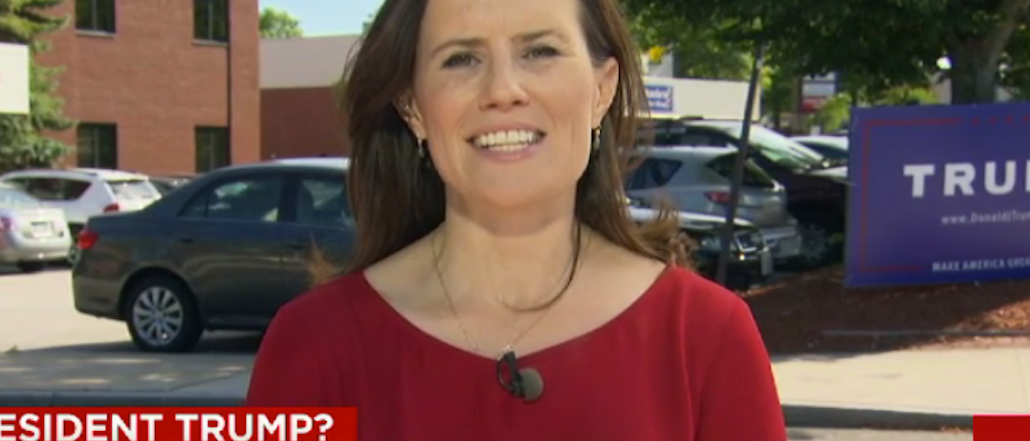Secure your place at the Digiday Media Buying Summit in Nashville, March 2-4

CNN gets its share of flak from media elites, but it has been on something of an innovation tear lately, taking a bit of inspiration from an unlikely source: print.
Last spring, it created CNN Digital Studios to make Web videos for Twitter audiences. Then it hired Ed O’Keefe, who has startup and TV experience at mobile video news startup NowThis and ABC News before that, to head up its Money and Politics digital verticals.
O’Keefe saw that digital was the key to reaching new audiences who weren’t already watching TV, but the Politics vertical wasn’t as strong as it could be. Traffic would spike during an election, then would die down. “It seemed very obvious that if we put as much effort, energy and financial backing into the digital organization as we could, we could see similar success to what we had on TV,” he said.
So with the 2016 election looming, O’Keefe did something that went against the grain for a broadcaster. Rather than hire from rival broadcasters, he raided traditional print and digital publishers outlets known more for their text reportage than video. Hires included Tanzina Vega from The New York Times, Stephen Collinson from Agence France-Presse and Maeve Reston from the Los Angeles Times.
The result is a heavy emphasis on publishing stories online first, then repackaging for broadcast; and ladling emojis and political side-show coverage into the report.
Despite her lack of TV training, Reston said she found herself contributing live shots from the trail in New Hampshire.
“It’s fun because the digital team has one perspective and the TV people are often more excited about something else,” she said. “I don’t have any formal TV training. I don’t think anyone at CNN wants that. They want people who are on the trails, being able to contribute to the TV report.”
News presentation has been shifting away from slick packaging to a more natural, authentic storytelling approach. That’s already happening at CNN, with its hiring of unconventional storytellers such as Anthony Bourdain and Lisa Ling for primetime. O’Keefe said digital demanded its own form of storytelling even more. “Digital is a different medium,” he said. “It’s really hard if not impossible to export TV to digital.”
CNN Politics has made gains in the first year under this new approach. With 13 million multiplatform unique visitors in May, it was No. 1 in comScore’s politics news category, ahead of Vox.com (11.2 million) and last year’s No. 1, Huffington Post Politics (now 9.4 million).
On mobile, which is increasingly dominating desktop as an avenue to the news, CNN Politics ranked No. 1 with 6.3 million uniques (comScore), just ahead of Vox.com (6.2 million), The Economist Group (5.5 million) and Fox News Politics (4 million).
For news organizations that want to appeal to millennials, the imperative to master digital is clear. According to a Pew Research Center report, millennials are more likely to get political news from Facebook, less interested in politics and less aware of news sources than older generations. That means news orgs have to work harder to get Gen Y’s interest. And the concern with Facebook is that it tends to be an incidental source of news rather than a destination, Pew has also found.
People aren’t necessarily seeking out the news when they’re on Facebook, said Amy Mitchell, Pew’s director of journalism research. CNN is still top of mind with millennials and older generations, but it’s still unknown how well news outlets like it can establish brand recognition and foster a long-term relationship with readers on social media and translate its video content to digital.
“Video storytelling is going to work differently in digital versus broadcast and cable,” she said. “It remains to be seen who is the key destination.”
Image courtesy of CNN.
More in Media

Digiday+ Research: Dow Jones, Business Insider and other publishers on AI-driven search
This report explores how publishers are navigating search as AI reshapes how people access information and how publishers monetize content.

In Graphic Detail: AI licensing deals, protection measures aren’t slowing web scraping
AI bots are increasingly mining publisher content, with new data showing publishers are losing the traffic battle even as demand grows.

In Graphic Detail: The scale of the challenge facing publishers, politicians eager to damage Google’s adland dominance
Last year was a blowout ad revenue year for Google, despite challenges from several quarters.





